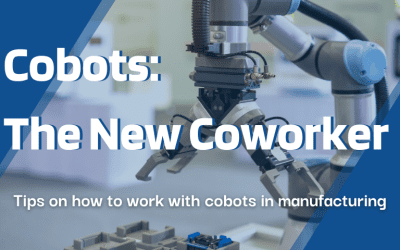
Getting an interview can feel like a big achievement. It doesn’t matter if it is your first or fiftieth interview. There’s something special about standing out enough from the competition to earn a slot of time with a possible employer, but most people have a fear that they could mess up the only opportunity they get to impress their future boss. Will you say the right thing? Will you make a good impression? Will they like you enough to hire you?
These questions can get tricky. Saying the right thing is more than just answering the questions presented in an effective way. Often, the person conducting interviews is not only looking for the ability to answer a question correctly, but is attentive to body language, composure, and confidence. In the same way, a shining resume will not guarantee a successful interview. Key aspects of the interview process include correctly answering questions, while also making a good impression through demeanor and body language.
How does one make all these factors come together? Show interest! Saying the right thing comes from being prepared and staying engaged during an interview. Making a good impression also comes from showing the employer that you are excited about the opportunity to work at the organization. These two things can help persuade an interviewer to like you, and that will give you a better chance of getting hired.
Showing interest in an interview begins before you walk through the door. It is a good idea to do basic research about a company before you interview with them. Most times, you don’t have to do detailed reading, just look over the company’s website. It is a good idea to know basic things like: What is the company’s mission statement (if they have one)? What do they sell? How many varieties of products do they offer? How many countries do they operate in? Those are basic things that will prove to an interviewer that you are committed to the process and truly interested in the organization. It is not necessary to go into great detail regarding your knowledge of the company. Wait for an appropriate time to briefly mention what you have read about the company and how, as a result, you think it would be a great place to work.
When the interview begins, work to make eye contact with the person who is interviewing you while talking. Avoid looking behind them, at the floor, ceiling, or at your hands. Eye contact is one of the best ways to engage with the interviewer while showing you are paying attention and interested. Looking away from the interviewer can portray boredom or lack of focus and reflect negatively.
Most of the time, at the conclusion of an interview, you will be given the opportunity to ask questions. Don’t pass up this chance! Again, asking a few questions reiterates the interest you have in the position. Make sure the questions are relevant to your applied position and are not personally directed at the interviewer. In the initial interview, avoid asking questions about benefits and salary unless the interviewer initiates these topics. Keep the questions focused and brief as to avoid going beyond the scheduled interview time. Only ask what you feel you would want to know prior to working at the company.
By intentionally showing interest, you can easily make a good impression on an interviewer, as well as stand out to him/her, not only as a person who wants to work, but at someone who is the right fit for their organization.
Click here to read more career tips from MAU!
{{cta(‘a2bf6ecb-8324-4c51-86fd-c3e42e1379ea’,’justifycenter’)}}




-400x250.png)